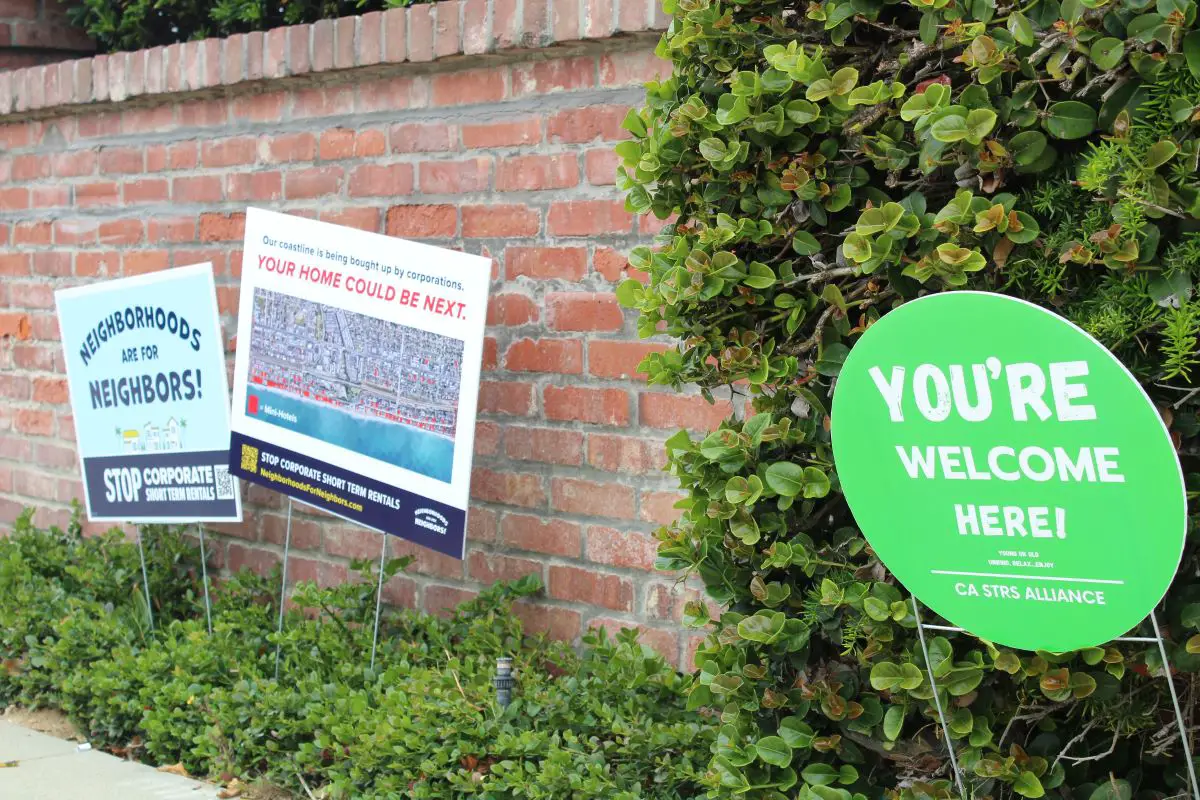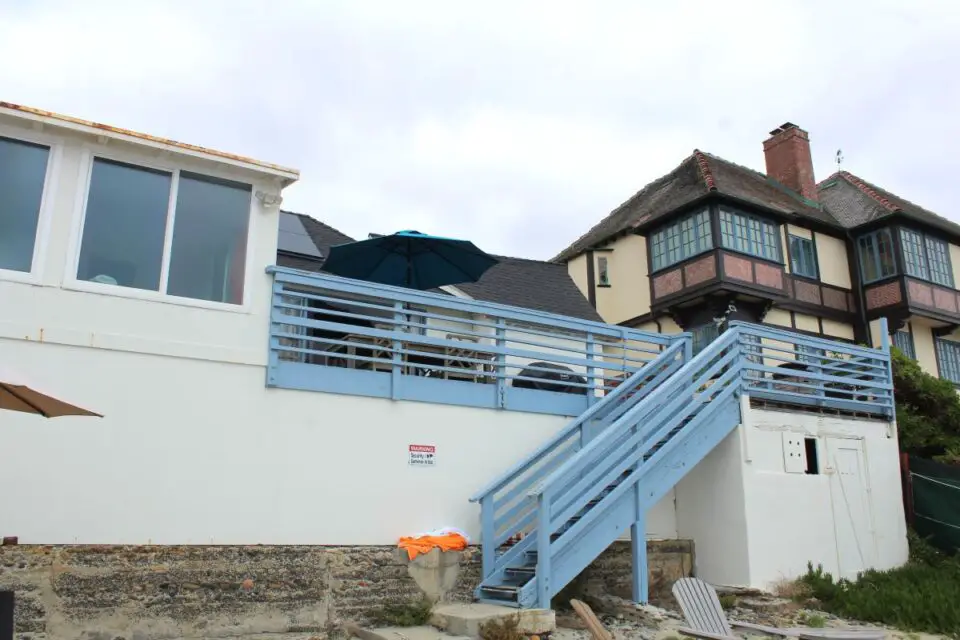OCEANSIDE — The City Council recently established a cap on non-hosted short-term rentals in coastal neighborhoods west of Coast Highway and will not allow new vacation rentals in a South Oceanside residential zone fronting the ocean along Pacific Street.
The council approved a staff-recommended option on April 24 that caps non-hosted short-term rentals located between the beach and the highway at 480 units. Since 455 non-hosted rentals already operating in this area, only 25 additional non-hosted rentals will be permitted under this new limit.
Non-hosted short-term rentals are temporary lodgings, typically owned by corporations, without a host using the home as their primary residence. Critics have called these types of rentals “party houses” and “mini-hotels,” and they have been a source of contention among neighboring homeowners for years.
The staff’s recommendation also grandfathers in existing non-hosted short-term rentals in the R-1 (or residential zone) neighborhood. Additionally, the new rules also specify that only homeowners can use their property as a short-term rental, preventing tenants from acting as rental operators.
If a home with a non-hosted rental permit is sold, the permit expires and does not transfer to the new owner. Additionally, non-hosted rentals operating in the R-1 zone will lose their permits if the property is sold.
The new rules also state that rental operators cannot advertise rentals with more than five bedrooms; rentals can have no more than 14 guests regardless of bedroom count; no loud or offensive sounds are permitted between 10 p.m. and 10 a.m.; and the rental permit number must be displayed on the hosting platform.
The move also added two new categories of fines and stricter penalties for threats to public health and safety or operating without a permit. Operators who violate these standards could face a $1,500 fine for the first infraction and $2,500 for a second or subsequent violation, plus revocation of their permit.
As a caveat to approving the staff’s recommendation, the City Council wanted periodic status reports on the amended ordinance.

“We need to bring this back for review every year or two years,” Councilmember Rick Robinson said.
Short-term rentals have been a hot-button issue in Oceanside and the San Diego region for years.
Many residents feel that vacation rentals are consuming too much of the city’s housing stock and creating too many disturbances for neighbors. Others argue that short-term rentals provide a significant chunk of the city’s revenue via transient occupancy tax or TOT.
More recently, the Neighborhood for Neighbors coalition has argued that corporate short-term rental operators are buying up properties to create “mini-hotels” and “party houses” that destroy the character of local neighborhoods.
“We want help to make sure neighbors are not paying the price for investor’s profits while Oceanside allows corporate STRs to expand and buy up housing stock,” said Jeff McDermott, one of the leaders behind the Neighborhoods for Neighbors group. McDermott owns a large home on South Pacific Street next to one of Rancho Santa Fe-based retired anesthesiologist David Fischbach’s STRs.
This argument has been countered by another coalition of residents, the California STR Alliance, which claims several of the ringleaders of Neighborhoods for Neighbors are wealthy homeowners who don’t primarily live or vote in Oceanside and are seeking to create a private beach of their own.
More than 50 people voiced their concerns to the City Council on April 24, with the room split evenly between the opposing groups. For many, staff’s recommendation provided a welcomed balance to the issue.
Sully Sullivan, an Oceanside resident, local real estate investor and energy consultant, credited Fischbach for sparking a “renaissance” in Oceanside after turning around many dilapidated, troubled properties into desirable vacation rentals.
“It’s disappointing to see certain groups unfairly villainize our guests and operators,” Sullivan said. “Oceanside has undergone a remarkable transformation over the past decade thanks to initiatives like those led by David Fischbach. … It’s important to recognize that STRs have paved the way for Oceanside’s desirability as a visitor destination.”
Oceanside collects over $8 million in transient occupancy tax from visitors who stay in the city’s vacation rentals.
According to Darlene Nicandro, the city’s Director of Development Services, vacation rentals make up nearly 60% of Oceanside’s overnight accommodations. Approximately 1,200 rentals comprise the city’s combined total of 2,155 short-term accommodations, including hotel rooms.
By comparison, short-term rentals make up 25% of overnight accommodations in San Diego, 32% in Malibu, 23% in Huntington Beach, 17% in Coronado and 14% in Carlsbad.
Councilmember Eric Joyce was the only one to vote against the recommendation and disagreed with singling out R-1 neighborhoods.
“All neighborhoods are a vital piece of the puzzle,” Joyce said, noting that short-term rental numbers will only grow more concentrated in other neighborhoods.
The latest change follows the council’s previous decision in December to ban non-hosted STRs in areas outside of the city’s designated coastal zone.




